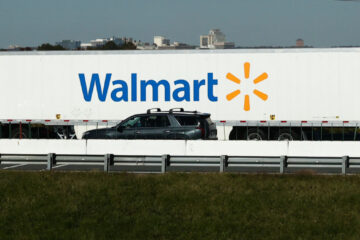The iPhone maker has no demand problems for its main products, but another danger lurks.
Apple (AAPL) – Get Apple Inc. Report has been one of the big surprises of the current quarterly earnings season so far.
The manufacturer of the iPhone and the iPad managed to thwart the most optimistic forecasts during the quarter ending on September 30.
Apple said earnings for the three months ending in September, the group’s fiscal fourth quarter, were pegged at $1.29, up 4% from the same period last year. Group revenues, Apple said, rose 2% from last year to an all-time high of $90.15 billion, just ahead of analysts’ estimates of $88.9 billion.
The company said on Oct. 27 that iPhone revenues rose 9.6% from last year to $42.62 billion. Sales in China, one of its biggest market, rose 6.25% to $15.47 billion. Net sales for the Mac were up 25% to $11.51 billion, while wearable, home and accessories sales, which include the Apple Watch, rose 9.8% to $9.65 billion.
Apple Stands Out
These results were proof that Apple was not affected by the ongoing economic downturn. Investors had feared that, like the rest of the tech industry, the Cupertino giant would be hurt by a pullback in consumers’ purchases. Consumers are affected by inflation which is at its highest in 40 years.
This inflation that central banks are fighting in the West with aggressive interest rate hikes could plunge the economy into recession, economists and business leaders have already warned. As a result, there is concern that consumers will delay planned purchases of tech products.
For example, investors fear that consumers would put off their desire to change new iPhones for better days. In addition, Microsoft (MSFT) – Get Microsoft Corporation Report, Alphabet (GOOGL) – Get Alphabet Inc. Report, Amazon (AMZN) – Get Amazon.com Inc. Report and Meta Platforms (META) – Get Meta Platforms Inc. Report, Apple’s rivals had previously signaled that the deterioration in the economy was impacting them.
But CEO Tim Cook suggested last week that Apple was playing in a league of its own.
“iPhone grew 10% in the Q4 timeframe to $42.6 billion,” Cook reminded analysts during the earnings’ call. “Customer demand was strong and better than we anticipated that it would be.”
There is nevertheless a problem, he then added: supply.
“In terms of the new products, the 14 and the 14 Pro and Pro Max, it’s still very early. But since the beginning, we’ve been constrained on the 14 Pro and the 14 Pro Max and we continue to be constrained today,” the Chief Executive Officer said.
“And so we’re working very hard to fulfill the demand. It’s difficult to say what the mix will be until we can satisfy the demand because we’re not able to determine the accurate mix until then. But we’re working very hard to do that.”
The Apple Watch has the same supply problem, Cook added.
“The Ultra is — was supply constrained and continues to be supply constrained during this quarter thus far. And so we’re working hard to satisfy the demand bearing, get those products to customers,” Cook said.
New Covid Outbreak in China
It seems that it will be more complicated than expected to meet demand since cases of covid-19 have just been detected in a Foxconn factory in China. Foxconn is one of Apple’s largest suppliers. China has a zero-covid policy that disrupts supply chains.
Social media videos show people, believed to be employees of the Foxconn factory in central China’s Zhengzhou city, jumping company fences to go home.
Stephen McDonell, journalist with the BBC, posted several videos.
For the moment Foxconn has not yet said how many cases of covid-19 have been detected within the factory. The company has 200,000 employees at its Zhengzhou complex.
Last week, nearly 200 cases of covid were reported in Zhengzhou, capital of Henan province, which has a population of more than 10 million.
A partial lockdown has been decided, according to Reuters.
Foxconn said Sunday that it would not prevent the employees from leaving. It told media that it was maintaining “normal production” as the company ramps up iPhone 14 production rates.
“The government agreed to resume dine-in-meals to improve the convenience and satisfaction of employees’ lives,” Foxconn said .
And for those who want to go home, Foxconn “is cooperating with the government to organize personnel and vehicles to provide a point-to-point orderly return service for employees from today.”
It is difficult to know what the impact of this new outbreak will be. But according to Reuters, citing unnamed sources, the factory’s production of iPhones could fall by 30%.
Neither Apple nor Foxconn immediately responded to a request for comment.
China’s zero covid-19 policy pushes authorities to issue lockdowns as soon as cases are reported in a city or region. This disrupts the functioning of factories where companies are forced to be creative, with the green light from the authorities, to avoid devastating production stoppages.


